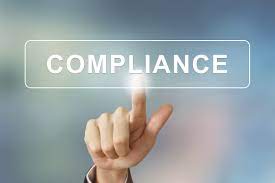2022 was a very significant year for every compliance practitioner and compliance program. While there was a paucity of corporate FCPA enforcement actions, there were three enforcement actions were significant with multiple lessons for the compliance professional. In ABB, we learned about the costs of a corrupt culture and recidivism, in Glencore, we saw happens to a company which engages in worldwide, systemic bribery and corruption. Finally, in Stericycle, the company had a culture of corruption burned into the DNA of the LATAM business unit which was so thorough that it was documented via bribery spreadsheets and analysis of revenue based on payments of bribes in LATAM. Yet even with this corrupt culture, the Stericycle enforcement action demonstrated how a company can take advantage of the discounts available under the FCPA Corporate Enforcement Policy by extensive cooperation and remediation during the pendency of the FCPA investigation, as the company obtained a 25% reduction off the bottom of the applicable US Sentencing Guidelines fine range.
September saw the announcement of a significant refinement of Department of Justice (DOJ) enforcement policies on the around Foreign Corrupt Practices Act (FCPA) enforcement and corporate compliance programs. It was encapsulated in the Monaco Memo and a speech by Deputy Attorney General Lisa Monaco announcing the Monaco Doctrine. There was also additional commentary by Principal Associate Deputy Attorney General Marshall Miller, in a speech and a speech by Assistant Attorney General Kenneth A. Polite. Every compliance professional should all of them in detail as they significantly turn the heat up on corporate compliance programs.
The Monaco Memo is broken down into four main sections: I. Guidance on Individual Accountability; II. Guidance on Corporate Accountability; III. Independent Compliance Monitorships; and IV. Commitment to Transparency in Corporate Criminal Enforcement. The Monaco Memo is both further clarification and further guidance for line prosecutors when they are considering whether to put a monitor in place. While we have seen these factors in a disparate manner, in disparate places, here they are in writing. Perhaps the greatest significance is that the Memo sets down all these matters in writing which leads to a blueprint for DOJ thinking and a roadmap for anyone who finds themselves in an FCPA investigation or enforcement action.
I see the Monaco Memo and the Miller and Polite Speeches as complimentary releases of information which drive home several key changes in DOJ enforcement. Perhaps changes are too strong, but they these announcements make clear the DOJ is dedicated to individual accountability and prosecution. Corporations will have to reorient their approach to investigations and sharing of information with the DOJ to this new mandate. Next the DOJ is strongly shifting the burden in the investigatory and negotiation phases to make clear the company must come forward with evidence to support lower fines and penalties and greater discounts, particularly in individual financial penalties and incentives, i.e., clawbacks. The Monaco Memo laid out not simply how to avoid a monitor but a program of proactive monitoring which can lead to the prevention of a crime before the FCPA is violation. Finally, the Monaco Memo cemented the new DOJ requirement for CCO certification of compliance programs at the end of a resolution.
The final key event for compliance in 2022 was very much under the radar. It was the DOJ hiring of Matt Galvan to help develop a data analytics expertise and capability for the FCPA Unit and the Fraud Section. Galvan was most recently the CCO at AB InBev and perhaps the top compliance profession in the use of data analytics for a corporate compliance program. It will be most interesting to see where Galvan and the DOJ take this initiative, but it does portend the increasing use of data analytics in FCPA enforcement and compliance.



